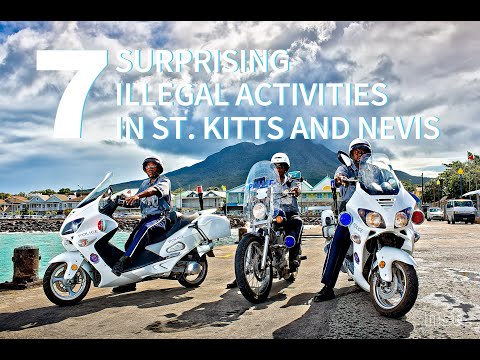
St. Kitts and Nevis, a twin-island nation known for its stunning landscapes, vibrant culture, and historical landmarks, is typically perceived as a serene Caribbean getaway. However, like many countries, it harbors specific laws that might surprise visitors and locals alike. Here’s a look at seven surprising illegal activities in this beautiful nation.
**1. Importing Camouflage Clothing**
In St. Kitts and Nevis, wearing or importing camouflage clothing is illegal for anyone who is not a member of their security forces. This law aims to prevent confusion or false representation as military or police officers. Tourists often find themselves unaware of this regulation which can lead to complications with local authorities.
**2. Feeding Monkeys**
While the monkeys of St. Kitts might be charming photo subjects, it’s illegal to feed them. This law was put into place to discourage the feeding of non-native monkeys (primarily African Green Monkeys), which can alter their natural behavior and disrupt the ecological balance.
**3. Collecting Sea Shells on the Beach**
One might think collecting a few sea shells as souvenirs from the pristine beaches of St. Kitts and Nevis is harmless fun; however, doing so is against local environmental laws designed to preserve marine biodiversity and beach aesthetics.
**4. Using Loudspeakers Outdoors After Midnight**
When it comes to nightlife, local laws stipulate that loud music or any use of loudspeakers outdoors must cease after midnight unless specific permission has been granted for an event or venue by local authorities.
**5. Fishing Without a License**
Fishing is a popular activity in the waters surrounding St. Kitts and Nevis but doing so without the appropriate license is illegal—even if you are fishing for personal enjoyment from non-motorized watercraft like kayaks or paddleboards.
**6. Hanging Clothes in Front Gardens**
In certain residential areas across St. Kitts and Nevis, there are regulations against hanging clothes or laundry visibly in front gardens or from balconies facing public streets—meant to maintain aesthetic uniformity and curb appeal within communities.
**7. Public Profanity**
Using profane language in public places in St. Kitts and Nevis can attract fines or even imprisonment under obscure but still enforceable laws relating to public decency.
These surprising aspects of law enforcement showcase how cultural norms vary significantly across different parts of the world—what might be common practice elsewhere could be illegal on these islands.
For tourists planning a trip to this idyllic destination, getting acquainted with such unique statutes is crucial—not only to avoid unintentional lawbreaking but also as part of respecting local customs and contributing positively to tourist-local relationships during your stay.
